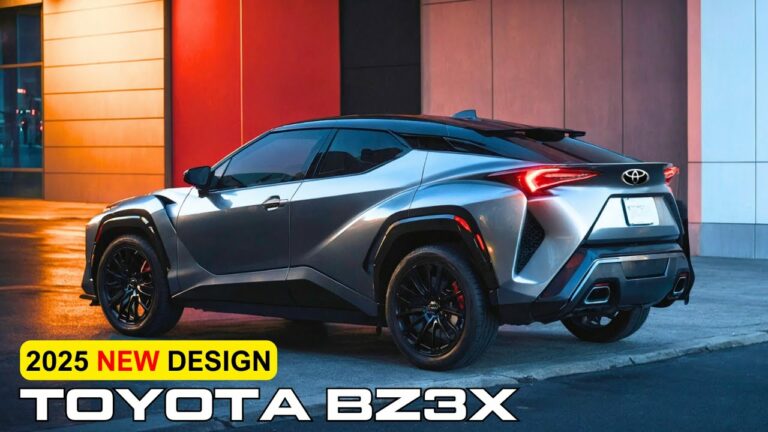2026 Toyota Prius Xw60 Price
Market Overview
The automotive industry is undergoing a significant transformation, driven by growing environmental concerns and technological advancements. Hybrid vehicles, which combine an internal combustion engine with an electric motor, have emerged as a popular choice for consumers seeking fuel efficiency and reduced emissions. The global hybrid vehicle market is expected to experience steady growth in the coming years, with increasing demand from both developed and emerging markets.
The competitive landscape for hybrid vehicles is highly competitive, with several major automakers vying for market share. Toyota, Honda, and Hyundai are among the leading players in the segment, offering a wide range of hybrid models to meet diverse consumer needs. These companies have invested heavily in research and development, introducing innovative technologies that enhance fuel efficiency and performance.
Pricing Analysis

The Toyota Prius XW60 is strategically priced to capture market share in the competitive hybrid vehicle segment. Its pricing strategy considers production costs, market demand, and competition.
The Prius XW60’s base model is priced slightly lower than comparable hybrid vehicles from Honda and Hyundai. This competitive pricing aims to attract value-conscious consumers and establish the Prius as an affordable option in the hybrid market.
Factors Influencing Pricing
- Production Costs: The Prius XW60’s production costs are influenced by factors such as material procurement, labor costs, and manufacturing efficiency. Toyota optimizes these factors to keep production costs competitive.
- Market Demand: The Prius XW60’s pricing strategy is influenced by market demand for hybrid vehicles. Toyota analyzes consumer preferences and market trends to set a price that meets customer expectations and aligns with demand.
- Competition: The Prius XW60 faces competition from other hybrid vehicles, including the Honda Accord Hybrid and Hyundai Sonata Hybrid. Toyota considers the pricing of competitors to ensure the Prius XW60 remains competitive and offers value to consumers.
Target Audience and Marketing Strategies

The 2026 Toyota Prius XW60 targets environmentally conscious individuals seeking a fuel-efficient and technologically advanced vehicle. These consumers prioritize sustainability, innovation, and value for their money.
To effectively reach and engage this audience, Toyota should employ a multifaceted marketing strategy that leverages digital platforms, traditional advertising, and experiential campaigns. Social media channels like Instagram, Facebook, and Twitter offer direct access to target customers who engage with eco-friendly content and automotive news. Paid advertising on search engines and automotive websites can further expand the reach to individuals actively seeking information about fuel-efficient vehicles.
Marketing Channels
– Digital advertising on search engines, automotive websites, and social media platforms
– Traditional advertising in print publications, television commercials, and billboards
– Experiential marketing through test drives, pop-up events, and partnerships with environmental organizations
Messaging Strategies
– Highlight the Prius XW60’s exceptional fuel efficiency and environmental credentials
– Emphasize the vehicle’s advanced technology features, including the latest Toyota Safety Sense suite
– Position the Prius XW60 as a smart and stylish choice for eco-conscious consumers
Impact on the Automotive Industry
The 2026 Toyota Prius XW60 is poised to make a significant impact on the automotive industry. As a pioneer in hybrid technology, Toyota has consistently pushed the boundaries of innovation and technological advancements. The Prius XW60 is expected to continue this legacy, setting new standards for hybrid vehicles and influencing the future of the automotive landscape.
Driving Innovation and Technological Advancements
The Prius XW60 showcases Toyota’s commitment to sustainable mobility. Its advanced hybrid powertrain combines a highly efficient gasoline engine with a powerful electric motor, optimizing fuel economy and reducing emissions. The vehicle’s sleek design and aerodynamic enhancements further contribute to its efficiency, making it a testament to Toyota’s engineering prowess. The Prius XW60 also incorporates cutting-edge technologies, such as a comprehensive suite of safety features and an intuitive infotainment system. By integrating these advancements, Toyota is driving innovation and setting new benchmarks for hybrid vehicles.
Implications for the Future of Hybrid and Electric Vehicles
The Prius XW60’s success is expected to have far-reaching implications for the future of hybrid and electric vehicles. As consumers become increasingly aware of the environmental benefits and cost savings associated with electrified vehicles, the Prius XW60’s popularity will likely fuel demand for similar offerings from other manufacturers. This, in turn, will encourage healthy competition and accelerate the development of even more advanced hybrid and electric vehicles. The Prius XW60’s impact will not be limited to the hybrid segment; it will also inspire the development of fully electric vehicles, contributing to the broader transition towards sustainable transportation.
Q&A
What is the expected price range of the 2026 Toyota Prius XW60?
The 2026 Toyota Prius XW60 is expected to be priced between $25,000 and $35,000, making it competitive with other hybrid vehicles in its class.
How does the Prius XW60 compare to its predecessors?
The Prius XW60 boasts a more powerful hybrid powertrain, improved fuel efficiency, and a more spacious interior compared to its predecessors.
What are the key target markets for the Prius XW60?
The Prius XW60 targets environmentally conscious consumers, urban commuters, and families seeking a practical and fuel-efficient vehicle.

